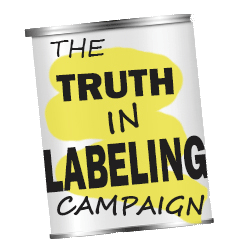The web is a treacherous place. And the marketing done to sell toxic food additives may be the most dangerous territory of all.
According to Stanford University Professor Sam Wineburg,1 an article’s bylined author may not be its author. References that confer legitimacy may have little to do with the claims they anchor. Signals of credibility like a dot-org domain can be the artful handiwork of a Washington, D.C. public relations expert.
Wineburg cautions that unless you possess multiple Ph.D.’s – in virology, economics and the intricacies of immigration policy– often the wisest thing to do when landing on an unfamiliar site is to ignore it.2
Through years of painful experience, I have learned that posts about any “controversial” subject may harbor deceptive and misleading statements, half-truths, and affirmations from “experts” or “celebrities” who know nothing about the subject or are being generously “thanked” for their participation. Not to be overlooked are details behind the controversy left untold.
In his article, Wineburg tells us that “Learning to ignore information is not something taught in school. School teaches the opposite: to read a text thoroughly and closely before rendering judgment. Anything short of that is rash. But on the web, where a witches’ brew of advertisers, lobbyists, conspiracy theorists and foreign governments conspire to hijack attention, the same strategy spells doom. Online, critical ignoring is just as important as critical thinking.”
The “controversial” story I know a lot about is the story about the alleged safety of monosodium glutamate (a.k.a. MSG). The stories told about MSG and its toxic constituent, manufactured free glutamate (MfG) have two arms. The first arm reaches out to you with warm fuzzy feel-good words that trigger visions of delicious, savory food, all due, so you are told, to this flavor enhancer that is being promoted.
The second arm that Wineburg was talking about brings you words designed to convince skeptics that MSG is a harmless, even beneficial, food additive. And that arm extends out to TV, YouTube, and print media and embraces the Internet.
A stunning example recently appeared in an article titled Food Science Babe: MSG myths persist despite decades of research. It was published on 5/13/2021 at the website agdaily.com, which is quite an interesting story all on its own. But more about that another time.
Adrienne Samuels
References
1. Sam Wineburg, Professor of Education and (by courtesy) History, Stanford University
2. https://theconversation.com/to-navigate-the-dangers-of-the-web-you-need-critical-thinking-but-also-critical-ignoring-158617 (Accessed 5/15/2021)


